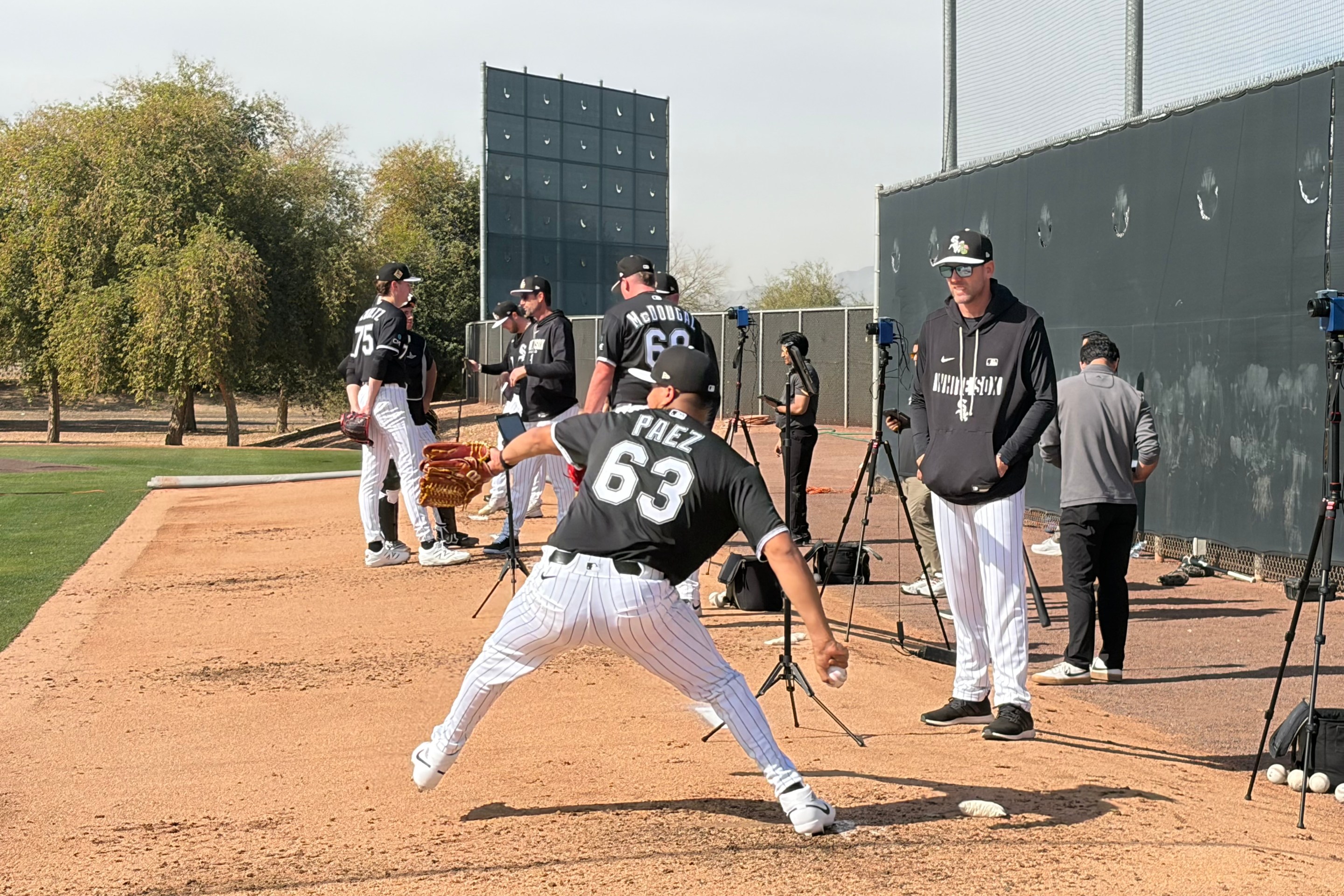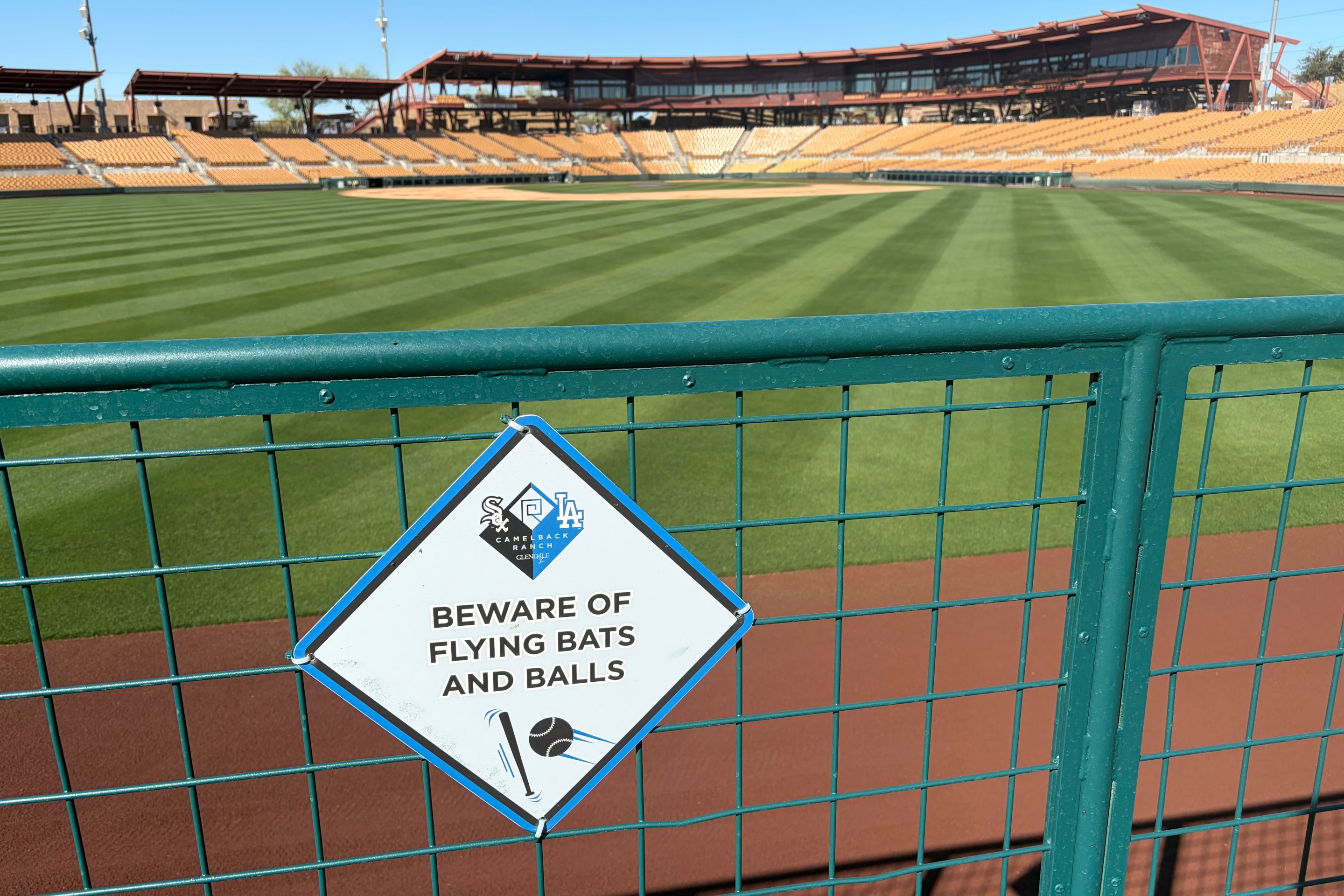White Sox catching prospect Kyle Teel heaps praise upon his family -- chock-full of high-level athletes on both sides -- for their support, but also for letting him forge his own path.
That said, a lot about the former first-round pick's approach to the sport falls into place when he reveals that his father, Garret Teel, was a former minor league catcher and catching instructor for the Dodgers.
No other position faces toward every moment of the action on the field, probing every pitch and swing for patterns and the appropriate response quite like a catcher, so it fits that it's where Teel's voracious appetite for information ended up.
"I would define myself as a baseball rat as well," Teel said, upon being informed that several other people have already called him such. "I like to understand things. I like to look at numbers and make it make sense. I don't want to just do things blindly. I want to know why it works, and that helps me be 100 percent convicted in everything I do."
"He wants to go through his routine everyday, and then it's, 'Try to break me down, find where my bat path isn't covering, and I'll find a solution,'" said White Sox director of hitting Ryan Fuller, who has also called Teel a baseball rat. "An ultra competitor, chirps [at] people around him, makes it competitive and elevates the entire environment."
The competitiveness would go a long way to explain why Teel, by his own admission, has little patience for drill work as a hitter. As a catcher, he's more than content to break down video of his swing ad nauseam, to get himself in alignment with Fuller's wishes that he smoothens out the bigger movement of an aggressive, power-oriented hand load.
KYLE TEEL SAID LET ME MAKE IT TWO!!
— Charlotte Knights (@KnightsBaseball) May 23, 2025
Knights increase their lead to 8-0! pic.twitter.com/QHyi3rYDVe
But if he's going to grab his bat and put ideas into practice, Teel wants it to feel like a game, and it feels like a game when he's competing, forced to make swing decisions at full speed and execute. He calls himself "a big machine guy," and refers to the Trajekt the White Sox had at their spring complex as "the best machine I've ever hit off of," and giving it some measure of credit for walk rates that have never slipped into single digits at any minor league level in his pro career.
"He's a naturally energetic and positive kid," said Knights manager Sergio Santos. "Weathering the storm, the peaks and valleys [of a season], he's done a great job of that. His attitude has always been great every single day. He has his routine and he does it every single day, so he's putting himself in a good spot."
After a red-hot opening series to the season that won him International League player of the week, Teel cooled off at the plate enough that his current 30-game on-base streak at Triple-A might have snuck up on some people. The 23-year-old attributes it to nothing more than the highs and lows of the season, but that he's homered three times over his last two games since giving this interview sounds more like the direct result of his current focus.
"I feel like there's more in the tank for hitting the ball in the air," Teel said. "I've been hitting a lot of low line drives and I think I could lift the ball a little bit more. I'm just focused on doing it the right way, not forcing it. That's been my main priority: hitting hard line drives and trying to get the ball in the air a little more. I try and let [power] come, but when it comes to getting my work in, I think it's important to practice hitting the ball in the air, especially pull side. I believe it's important to hit the ball to all fields, yes. But if you want to do something, you've got to practice it."
With his burly slash line of .296/.389/.493 (129 wRC+) in 41 games at Triple-A Charlotte, Chicago media members were already asking Chris Getz on Friday if Teel was hitting his way to the majors, even if it meant manning a different position to get him up. While old college teammate Mike Vasil said Teel was one of the best outfielders Virginia had back when he was a freshman, farm director Paul Janish said in spring that they didn't want to clutter his catching development with other positions for now. And Teel and Getz both confirmed that he and the White Sox haven't had any conversations about other spots on the diamond at this time.
"Number 19 has a 19-Game Hitting Streak!" pic.twitter.com/XErHeLgR7x
— Charlotte Knights (@KnightsBaseball) May 23, 2025
Plus, Teel is the son of a catching instructor, and indications of such tend to bleed into his comments from time to time.
"I thought I was a really, really good receiver out of college, but after I've learned so much in pro ball, I realize I was just an average receiver in college and now I can really step up my game with my glove path," Teel said. "I think my numbers are looking good. At the start [of 2025] it was really good and then I went through a little bit of a roller coaster, a little down slope with my framing. Now I'm back up. I feel like I've just been trying to really hone in on the bottom of the zone. I'm good on my arm side, so it's just bottom of the zone and glove side I'm really trying to hone in on."
Adjustments to the finer details of glove load are something Teel has been working on since before the White Sox made him the headliner of their trade for Garrett Crochet. But the team has also harped upon how much Teel's starter-level catcher reps at Charlotte since Edgar Quero was promoted have afforded him opportunities to work on his pitch-calling, which he wasn't tasked with in college.
Teel describes him and Quero as "good friends off the field" with a "good relationship" and doesn't blanch at the idea of them splitting reps behind the plate again. But more to the point, what does the son of a catching instructor father and a college softball player mother, who understands that he needs to read swings, disrupt timing and change eye levels, need to learn about pitch calling?
In a modern instance of Baseball Players: They're Just Like Us, top-100 catching prospect Kyle Teel is simply getting familiar with the new computer program at his job.
"The biggest I've learned in Triple-A so far is just understanding the ins and outs of TruMedia; that's the resource we use for looking at numbers and understanding of who we're going up against," Teel said. "Having that understanding of how to work that application, I feel like it gives me an edge. It sounds really simple, but it's made a huge difference.
"You'll learn a small thing and it's like dude, this makes my life so much easier, so it's pretty cool once you get it all down. When I do my scouting reports, I'm able to do them much faster now that I know the ins and outs, right? Before when I was doing a scouting report, it would take me hours. Now I can get it done in 30 minutes. If I'm more efficient I can look at more things, and overall it's more beneficial."
With a routine heavily centered around pitching machine and scouting-focused computer programs, player development looks a little different than it did 10 years ago, least of all around these parts. But Teel is going to reliably be on top of it. People call him a baseball rat.






